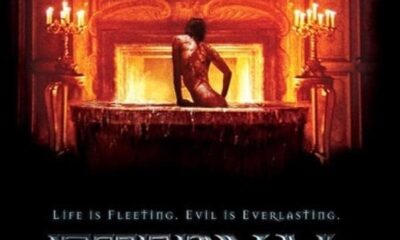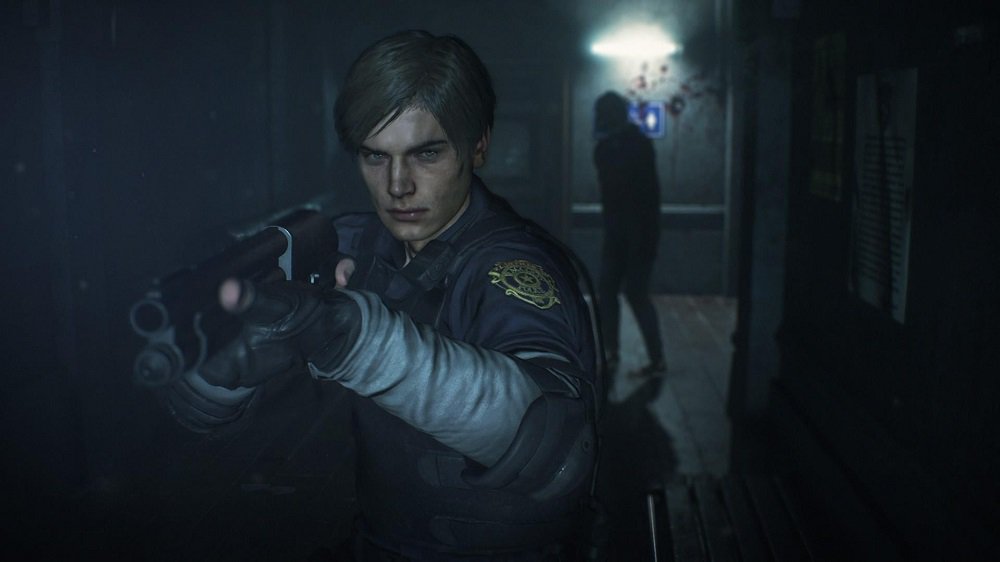
“Resident Evil” in the works for Netflix
Get ready to have a Jill sandwich, Resident Evil fans. Deadline indicates that Netflix is working to develop a TV series based on the classic Capcom survival-horror video game franchise. Netflix is reportedly adapting Resident Evil to television with Constantin Film, the producers of the Resident Evil film franchise.

Resident Evil: A horror powerhouse
The Resident Evil series is a multi-generational horror classic loved by gamers for nearly a quarter of a century. The series began in 1996 with the release of the first Resident Evil. As of 2018, the series has sold 85 million copies worldwide, making the series Capcom’s biggest franchise. Capcom released a remake of fan-favorite Resident Evil 2 in January of 2019.
In 2002, Constantin Film and Screen Gems released the first of the Resident Evil films written and directed by Paul W. S. Anderson. The films followed the original character of Alice in her battles with the evil Umbrella Corporation from the video games.
The film adaptations by Constantin Film have been widely commercially successful. In fact, the films represent the highest-grossing film franchise adapted from a video games series ever with over $1 billion in worldwide gross. Critical appraisal of these adaptations has not been as impressive, however, with some fans citing the series not utilizing original elements of the game effectively.
Netflix continues to build
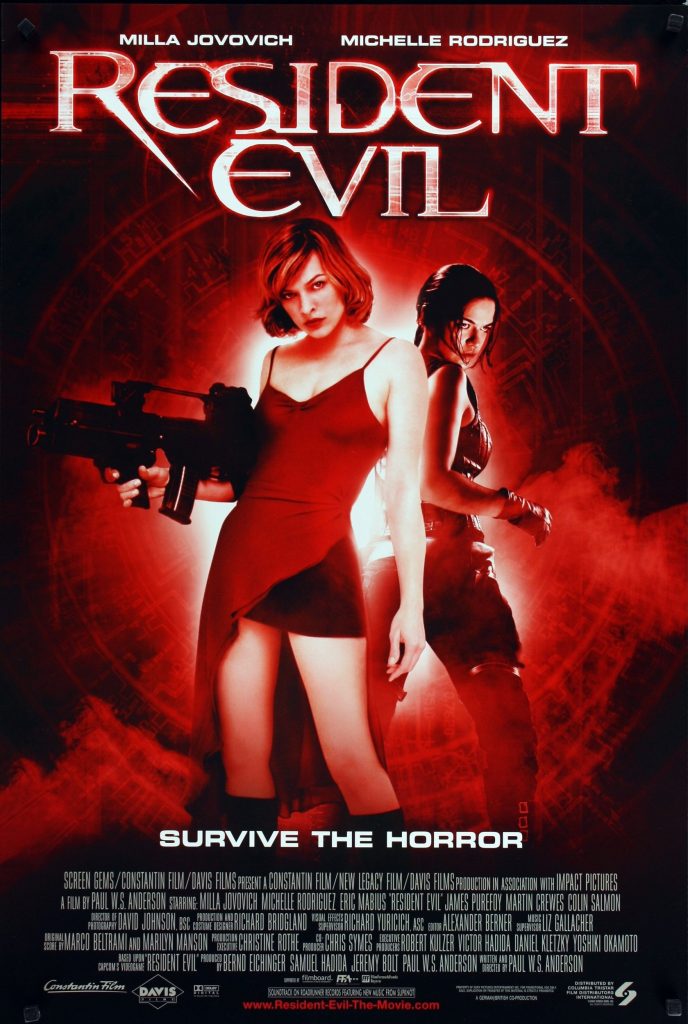
This news is not a shocking development for Netflix. Netflix is still, arguably, the single strongest streaming producer around. However, the streaming giant currently faces growing competition, among which includes Disney and their upcoming content streaming service. In response, Netflix has continually increased their spending on original content, having spent around $12 billion in 2018. The Resident Evil adaptation is further part of their $15 billion in content planning for 2019.
All of this spending does concern some investors, however. Netflix keeps many internal numbers, such as subscriber data, under wraps. This does not allow for a clear picture of their success. As a result, Netflix’s spending has been increasingly questioned given their current debt of $20 billion.
The road ahead
Details are currently scarce on how close the Netflix adaptation of Resident Evil will hew toward the classic story lines and characters of the video games. Ideally, Netflix will find a strong creative force to lead the charge. Just as they did with Castlevania, a critically-lauded and respectful adaptation of that classic horror series. Resident Evil for Netflix is reportedly seeking out a show runner for the adaptation.
So, where do you stand when it comes to the idea of a Resident Evil TV show on Netflix? Are you seeking a continuation of the film franchise, or would you prefer something closer to the video game series? For more content, please read our coverage of other adaptations here on Haunted MTL.
Gaming
Lovecraft Meets Junji Ito in WORLD OF HORROR
WORLD OF HORROR is a cosmic horror roguelite game developed by Paweł Koźmiński and published by Ysbryd Games.
WORLD OF HORROR is a cosmic horror roguelite game developed by Paweł Koźmiński and published by Ysbryd Games. The game is available on macOS, Windows, Nintendo Switch, PlayStation 4, and PlayStation 5. This review will cover the Steam (Windows) version of the game.
You must explore the strange goings on around Shiokawa, Japan. It appears that eldritch forces have influenced the town in incomprehensible ways. So, attempt to comprehend these forces and maintain your sanity to save the town. Plan your investigations, choose between cases, and fight for your life.
There are a few game modes but three difficulty spikes. The easiest is a specific case with some random events. This mode teaches you the basic mechanics of the game. The harder difficulties give you access to an apartment and choices on which case you investigate. Completing objectives earns you customization options for the customized mode.
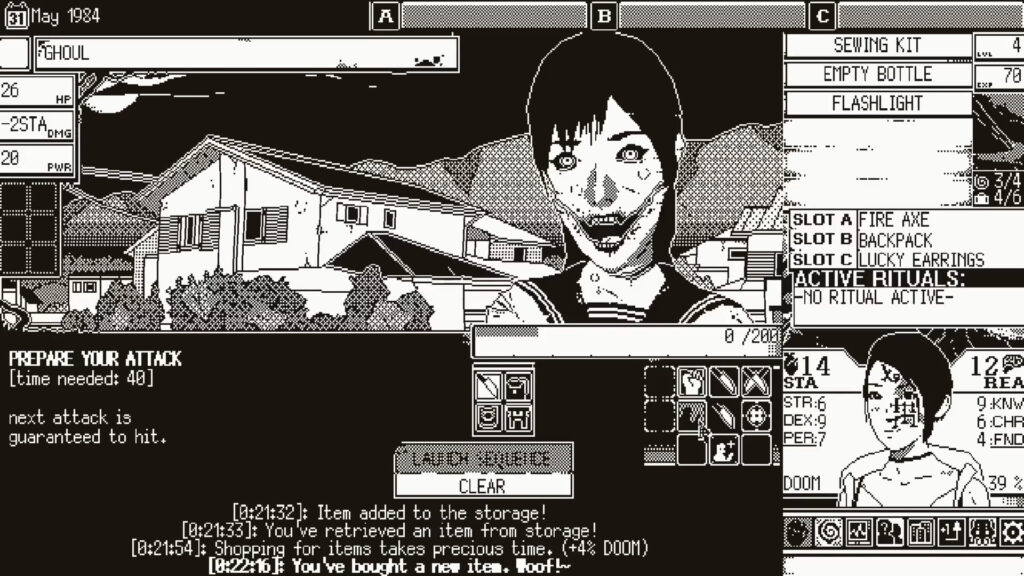
What I Like About WORLD OF HORROR
Running on GameMaker Studios, the pixelated aesthetic shows influences from Lovecraft and Junji Ito, though the latter more so than the former. WORLD OF HORROR haunts its viewers with its aesthetic, allowing the pixels to evoke those horror legends.
Random generation remains a key feature of the game, with various options and choices giving a massive variety. Your character also has some limited customization to access perks and further development. I will bring up some weaknesses later, but it is surprisingly vast. Adding to this variety, WORLD OF HORROR provides mod accessibility.
The combat allows for a great deal of thought and planning. You select your character’s actions within an action bar and perform the tasks (or combos) to beat an opponent. This JRPG style provides variety in action that makes it engaging and unique.
The random generation and variety make each playthrough different. You might acquire a devastating katana in one playthrough only to bleed out unceremoniously in another.
While not a terrifying gaming experience, WORLD OF HORROR strives to provide an eerie and intense experience. At this, the game is a success. The weird and unnerving collide to invest the player in this strange world.

Tired Tropes and Triggers
Body horror deserves a mention, but the aesthetic and pixels doesn’t particularly evoke realism. Regardless, many designs evoke body horror.
Aside from this, here are some points of consideration. First, WORLD OF HORROR uses JRPG turn-based combat, which seems a point of division among some gamers. However, there are enough interesting mechanics and complexities beyond clicking an action and waiting your turn.
Second, WORLD OF HORROR isn’t a cult detective. You’re experiencing events and choosing how your character responds. Some sage wisdom I heard for WORLD OF HORROR is to focus on the whole campaign instead of a single case. Failing a case isn’t a game over, so prioritize your character’s longevity.
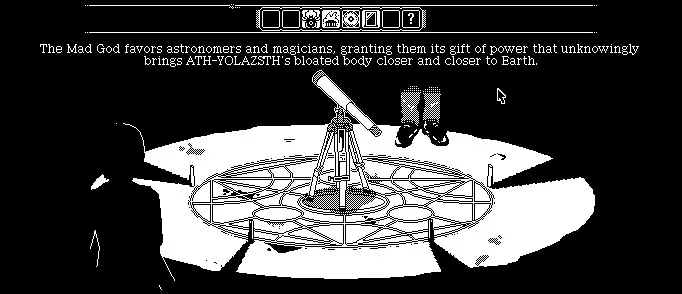
What I Dislike About WORLD OF HORROR
Only a few issues hindered my experience. Some scenarios replay on a single case, let alone a playthrough, which becomes repetitive. Some scenarios have multiple solutions to add variety or require perks to access new options, but that’s not always true. This issue makes the randomization taxing at times.
This next issue is likely a bug or an oversight. After losing my reason (sanity), I found myself still able to investigate despite the game claiming that means death. An unrelated event finished me off, but I can’t help but assume this is a bug.

Final Thoughts
WORLD OF HORROR has its quirks but earns massive replay value and surprising depth. It’s a unique and ambitious indie title worth the price. If Junji Ito’s style or cosmic horror is your particular brand of horror, WORLD OF HORROR delivers an experience you’ll likely enjoy. Though this combination synergizes well, few games combine these elements successfully.
Gaming
🎮 Eldritch Automata: Exclusive GenCon 2024 Reveal with Nick Francia!
Step into the mind-bending world of Eldritch Automata as we sit down with Game Designer Nick Francia at GenCon 2024!
Uncover the secrets behind this Lovecraftian mecha-masterpiece and get a glimpse of what’s to come.
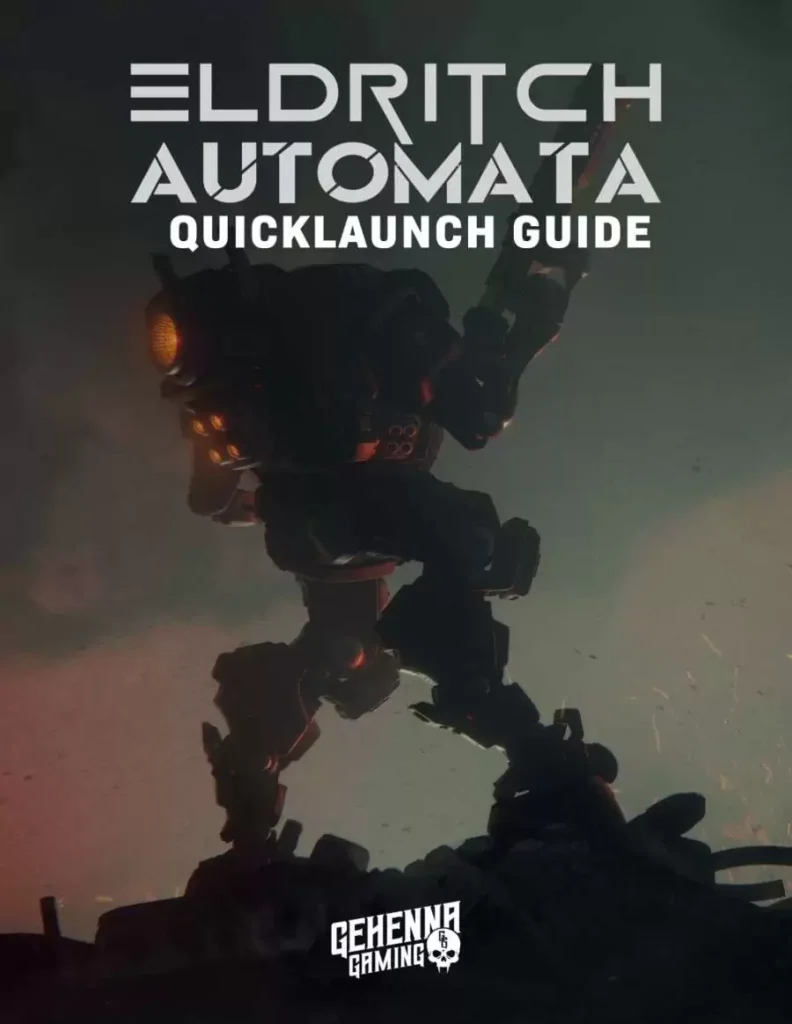
In this exclusive interview, Nick Francia shares:
• The intricate game development process • Inspirations behind the eerie Lovecraftian elements
• Unique mecha-infused gameplay mechanics Calling all Lovecraft fans! Dive into a world where eldritch horrors meet steam-powered marvels.
Eldritch Automata promises an unforgettable gaming experience that will keep you on the edge of your seat.
👉 Ready to embrace the madness? Check out our playable demo at a con near you! #EldritchAutomata #GenCon2024 #LovecraftianGaming #IndieGameDev
Gaming
🎬🎃 House of 1000 Corpses and Halloween II–GAMES!! 🎃🎬 Trick or Treat Studios
Prepare for a spine-chilling experience as Jim Phoenix delves into the shadows with Trick or Treat Studios at GenCon 2024!
In this exclusive interview, we uncover the terrifying secrets behind their latest bone-chilling creations: “House of 1000 Corpses” and “Halloween II” board games.
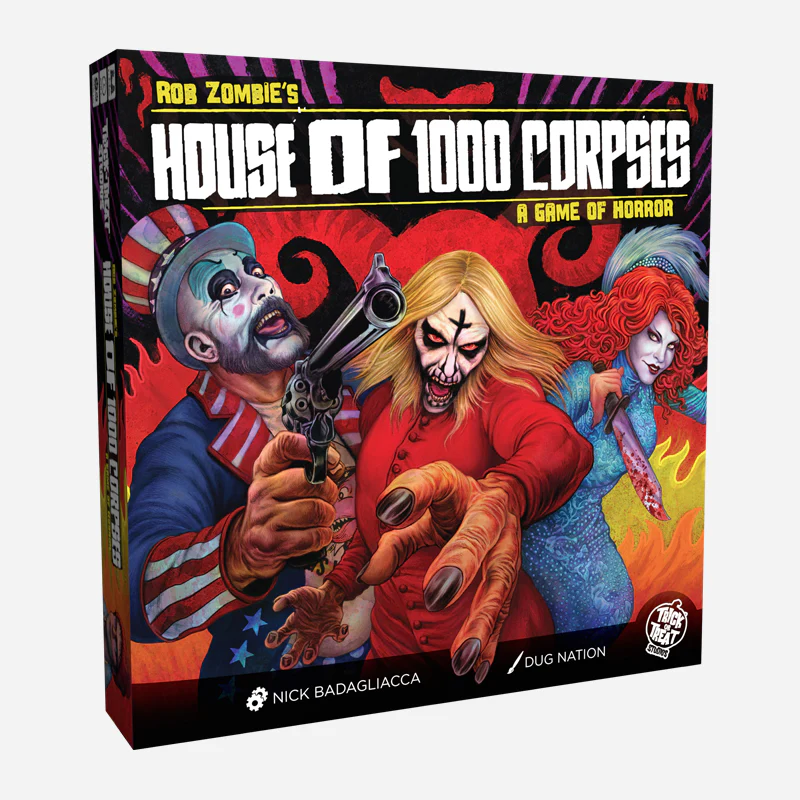
These games aren’t just about rolling dice – they’re about immersing yourself in the blood-curdling atmosphere of beloved horror films. With unique survival (and kill!) horror mechanics and cooperative gameplay, you’ll feel the terror coursing through your veins with every move!
But wait, there’s more! With the Kickstarter to House of 1000 Corpses shipping soon, we have an in-depth review coming up for that game, Halloween II–AND…Chucky. BOOMMM!!!












